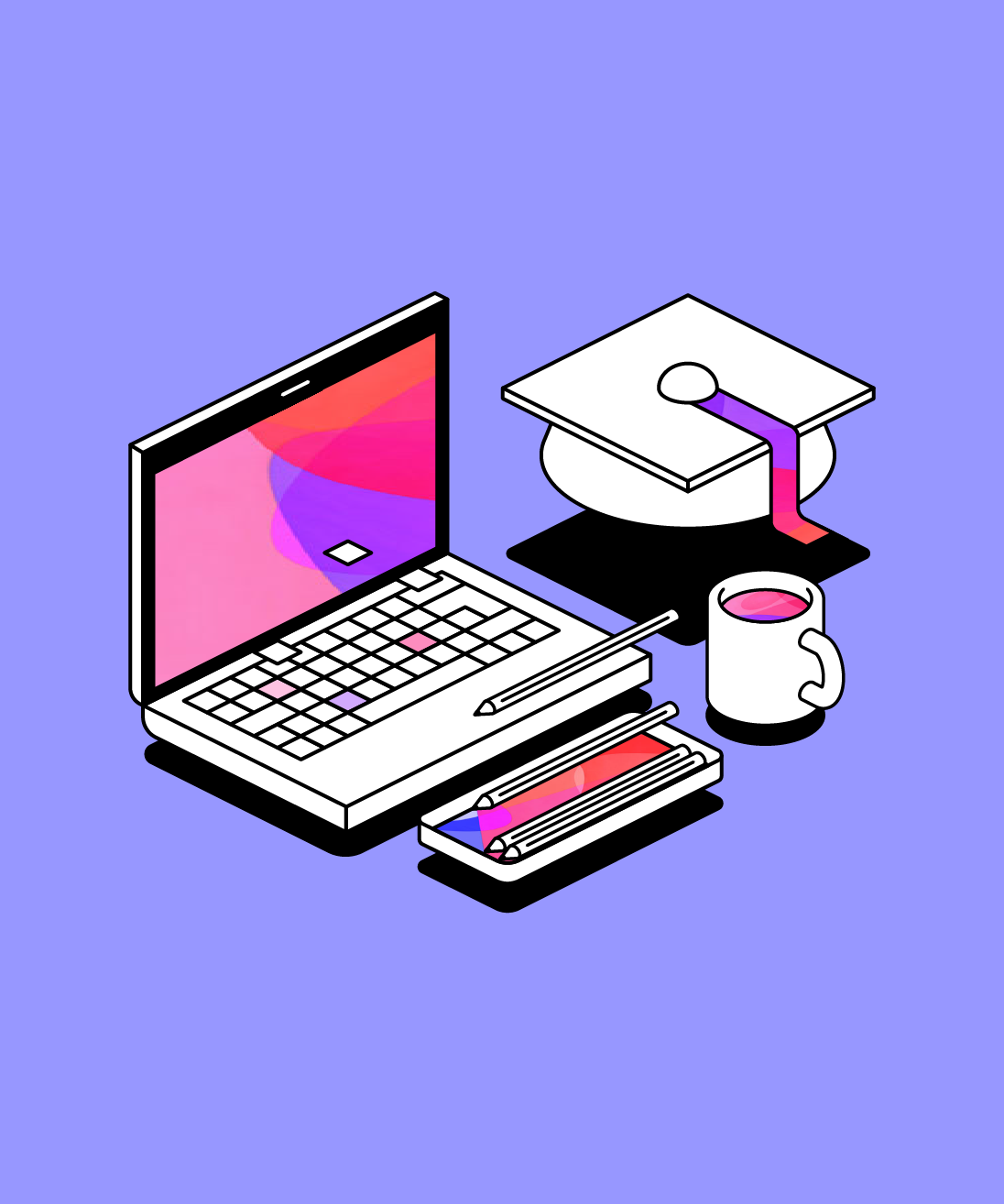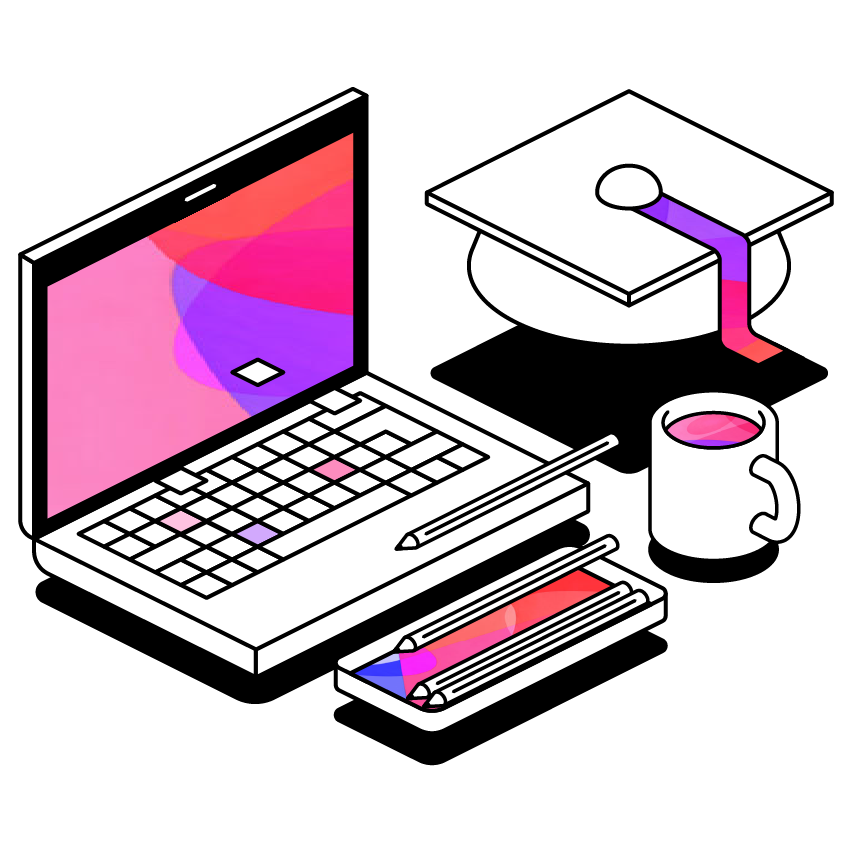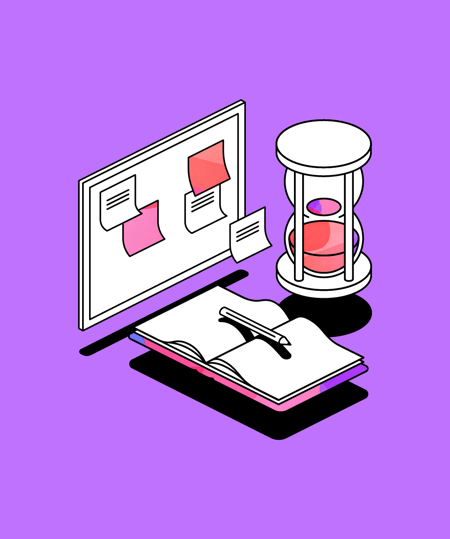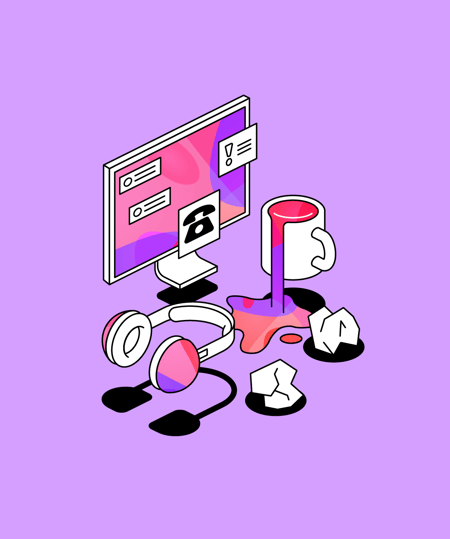How to help students become more confident in presenting
Helping students become confident presenters begins with helping them become experts in their subject. Learn why shifting presentation support to encouraging content mastery is vital. We also explore how digital rehearsal tools can provide the essential, scalable practice students need to internalize their content and handle anxiety, tough questions, and tech issues on the big day
 3 min read
3 min read
 Published: 18 Nov 2025
Published: 18 Nov 2025
 Phoebe Hoar
Phoebe Hoar


The assignment is set. The topic is chosen. For many students, especially those receiving extra support, the next step isn't outlining the slides; it's a surge of presentation anxiety.
Higher education professionals are tasked with finding solutions that do more than helping students to simply 'get through' a presentation, and allow them to become genuinely confident presenters.
We need a reliable strategy that creates a genuine safety net for your students when the unexpected happens - the technology fails, a complex question is asked, or the script disappears from memory.
The answer isn't in simply perfecting the performance. It's in perfecting the content.
Presentation confidence requires more than just performance coaching
Traditional student presentation preparation often focuses on external delivery skills: slide design, body language, and pacing. While important, these skills are the first to crumble when stress hits.
A student can rehearse a script a dozen times, but if they don't truly grasp the nuance of the subject they're presenting, any deviation from the plan can lead to a full stop.
For students with cognitive differences, challenges with working memory, or high anxiety, relying on a rigid performance script isn’t always that helpful.
The thread we need to follow is simple: Presentation confidence is a by-product of content expertise. When a student knows their subject inside-out, they feel inherently capable of handling any scenario.
How content mastery can reduce presentation stress
Thinking of deep subject knowledge as the ultimate accommodation is transformative. Content mastery, achieved through repeated practice, serves as a powerful buffer against the three common stressors in presentation delivery:
1. The question buffer
When a student has simply memorized facts, a spontaneous, probing question can derail the entire presentation. When they have achieved mastery, they have a mental map of the subject.
They can connect concepts, contextualize the question, and offer a coherent, expert response, even if they've never heard that specific question before.
Not to mention the internal confidence boost after successfully navigating unprepared questions, helping to create a multiplier effect for future presentations.
2. The tech buffer
Tech issues can be a source of anxiety, especially for those presenting in online lectures. What happens if the projector dies, the Wi-Fi drops, or the slide order is corrupted?
A student who knows the material can transition smoothly into an impromptu lecture or discussion. When they aren't dependent on the visual cues of the slide deck; the presentation remains in their control.
3. The anxiety buffer
Anxiety often stems from the fear of losing control. When a student is an expert in their presentation, they reclaim control.
They know they can pause, recenter, and pick up the thread because the knowledge is deeply internalized, not just recited from short-term memory. They are talking about something they genuinely understand, not just performing a task.
How can digital tools improve student presentation skills?
The physical practice environment is crucial, but so is the technological one. Modern EdTech offers powerful presentation practice tools that align perfectly with the goal of content mastery:
Low-stakes practice
Being comfortable and confident with what is being presented is essential for presentation confidence. This comes through repeated practicing which helps move the key concepts into students' long term memory.
Digital environments allow students to practice their presentation preparation and delivery dozens of times without pressure. This repetition is key to moving knowledge from short-term memory to deep internalization.
Focus on feedback
Practicing with feedback is essential. Digital tools, particularly those using AI, can give objective feedback not just on delivery, but also on the coherence and coverage of the content, helping students ensure they hit all their key points regardless of pacing.
Repetition with input
Some tools can simulate different scenarios or even offer basic interactive prompts, forcing the student to think on their feet and rely on their deep understanding of the material, not a pre-set script.
Capacity relief for student support teams
Student support teams face natural limits on the number of one-on-one sessions they can offer. Digital rehearsal tools act as an always-available practice coach, effectively extending the reach of the support teams.
They allow students to become a better presenter independently, reserving valuable staff time for students who require high-touch, specialized interventions.
By helping students become experts in their content, you give them the most powerful tool for improving their presentation skills, a tool that is resistant to anxiety, technology failure, and unexpected audience engagement.
The shift from performer to expert, supported by accessible tools, is the inclusive, high-impact approach higher education needs.
More from Supporting Students
View All
 2 min read
2 min read
How AI note taking tools can bridge learning gaps for STEM students with disabilities
Here, we explore how AI powered note taking tools act as a critical scaffold for STEM students with disabilities, helping with active conceptual engagement. This post breaks down how live transcripts and AI-generated retrieval practice. like quizzes, empower students to navigate technical subjects with full academic independence.

 3 min read
3 min read
How Genio Present can help students become more confident speakers
Students with anxiety or Specific Learning Differences can struggle to participate in oral assessments confidently and equitably. Learn how Genio Present helps students overcome public speaking anxiety, transforming nervousness into confidence and improving academic performance through innovative rehearsal techniques based on learning science.

 5 min read
5 min read
6 accessible learning apps for college students in 2026
Selecting tools that bridge accessibility and independence can be a transformative step in a student’s academic journey, fostering skills that last long after graduation. Here, we explore 2026’s top accessible learning apps, which empower students by automating unproductive barriers while preserving the deep, active engagement essential for true learning.





